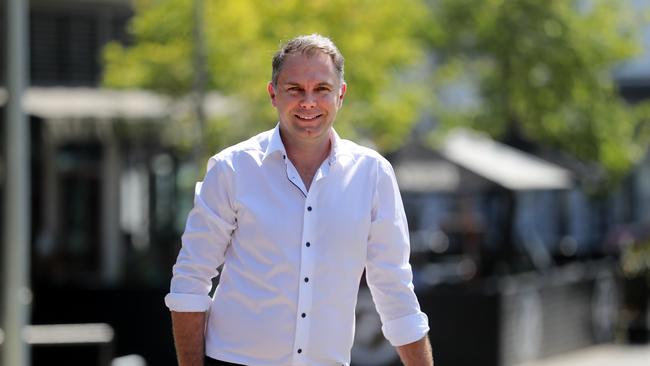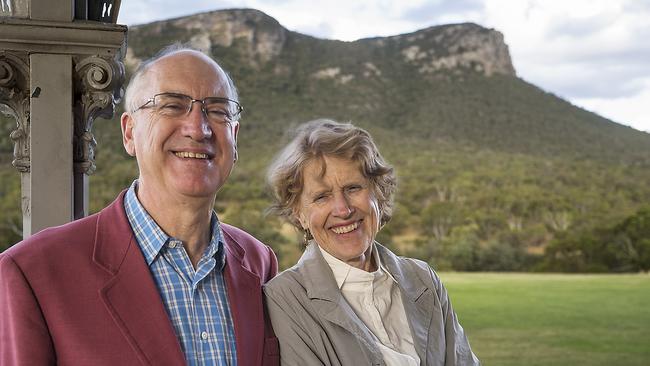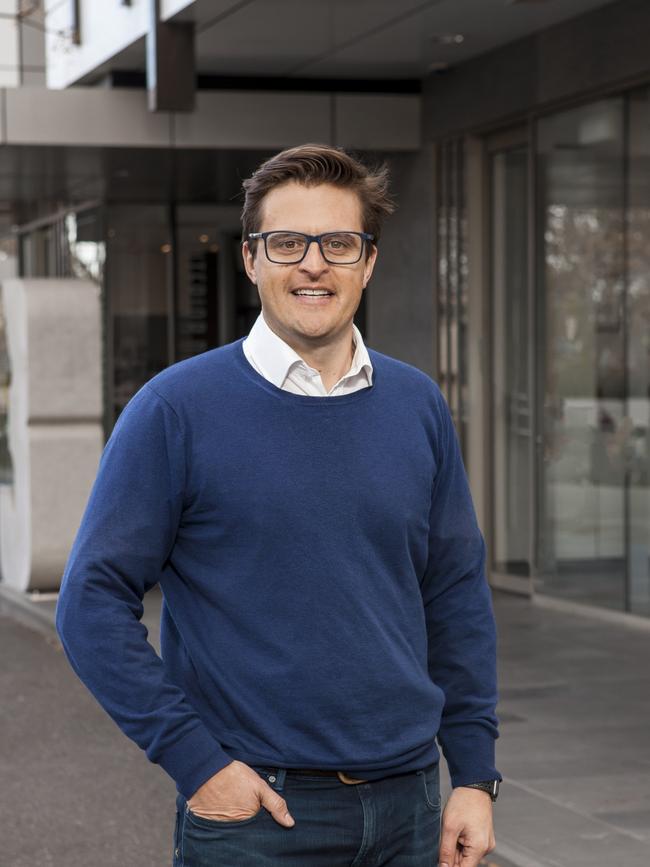Pay.com.au attracts Allan Myers, Rubino family, John McBain as investors
New backers of the fintech platform Pay.com.au, chaired by Damien Waller, include barrister Allan Myers and Perth’s Rubino family.

Rich-lister barrister Allan Myers, Perth’s wealthy Rubino family and early Afterpay backer John McBain have joined other big-name backers of a financial services firm that claims to be ‘the Switzerland of the points business’ in Australia.
Pay.com.au is a business-to-business payments and rewards platform that offers small businesses a bank account and credit card to use for payments, helping them earn rewards points to spend on virtually anything.
Since its launch two and a half years ago, Pay has attracted the attention of high-profile investors including Gandel and Scanlan family scions Adam Gandel and Brady Scanlan as well as Luxury Escapes chief executive Adam Schwab, PSC Insurance boss Paul Dwyer and Bell Potter’s Hugh Robertson.
Now a recent secondary share selldown in the private firm has brought in Mr Myers, the Perth-based Rubino family behind the listed Monadelphous Group and Melbourne IVF founder John McBain – an initial backer of Afterpay – as new investors.
“It was super positive to have such a strong interest in the stock for a secondary selldown,” said Pay chief executive Edward Alder.
Pay’s chairman is Damien Waller, Alder’s long-time business partner and the founder of online insurance comparison site iSelect.

Mr Waller reckons Mr Alder’s “passion for points is unrivalled in corporate Australia.”
That led them to purchase a frequent flyer point advisory business in 2018 called Point Hacks, which still operates today and is backed by the Waller Family Office.
But in building Point Hacks they discovered a much bigger opportunity in Pay that they now believe can become a multibillion-dollar revenue business and could be listed on the ASX in the future.
“We wouldn’t rule out a listing. But we also see businesses locally and offshore that could leverage this business to catapult it to another level,” Mr Alder said.
“You only get one or two chances in your life to build a genuinely big business. We are definitely growing one here that we believe could be valued at billions of dollars down the track.”
He described Pay as “the Switzerland of the points business” in Australia.
“The problem traditionally with points is that you only earn with one provider and only certain types of payments accrue points. We have created our own currency called Pay Rewards and our own platform which means we are completely agnostic about what clients and partners we deal with,” he said.
“We realised there was a huge opportunity in the B2B market around points. 30 per cent of the population is points-obsessed and some of the most successful people in business, no matter their wealth, still live love hacking things out. No one wants to pay full price.
“There are also a huge tranche of SMEs that are obsessed with points. So we are tapping into that market,” he said.
“There are $2.5 trillion worth of B2B payments in Australia and 2.5 million SMEs. This is the addressable payment space we operate in.”
Pay now has 12,500 SMEs on its platform, has completed $2.1bn of transactions and is growing at 20 per cent per quarter. Total Transaction Volume in the December quarter will be close to $600m.
Revenue is $80m on an annualised run rate basis.
Pay is currently signing up 800 customers a month, but wants to more than double that over the next 12 months. It expects to have at least 50,000 SMEs on the platform within the next 4-5 years.
“The business has been cashflow positive,” Mr Alder said. “There could be a new opportunity to raise fresh capital in 2024 for strategic initiatives and to fast track growth. The business has been expanding through partnerships with franchise owners of major fast food chains.”
Pay is now in advanced discussions with several new local and international partners and poised to offer same day payments and multi-access sign in for clients with multiple Australian Business Numbers (ABNs).
“In January, Pay will have same day settlement. So business owners can instantly play bills and employee wages with no wait time,” Mr Alder said.
The former chartered accountant was working for Ernst & Young in London in 2008 when he first truly appreciated the power of frequent flyer points.
Mr Alder and his team were assigned to a complex job in Moscow, which required months of travel between the Russian and English capitals. All in business class.
“I worked out that if I got a British Airways Black card and paid for all the flights for myself and the team on it, I could rack up the points,” he recalls.
“I had 1 million of them by the time I left EY and for our honeymoon in 2010, I hacked out two return business class flights for my wife and I between Melbourne and Los Angeles.”
He said the secret sauce of Pay was having its own unique reward platform that was highly scalable with secured end to end encryption, integrated real time Anti-Money Laundering (AML) and Know Your Customer (KYC) checks, and customer funds that are quarantined with an ANZ institutional platform account.
Importantly, he said, it was road-tested by family and friends and reviewed by some of the nation’s top accountants for at least 12 months before it was taken to the public.
“We made sure we were meticulous in the steps we built so the process would be as simple and frictionless as possible,” he said.
Mr Waller, who admits he has never been as enamoured with points as his business partner, puts it another way.
“The team have built the platform for themselves as points junkies. They have made it the perfect platform for them to use and then taken it to the public. I also use it myself for many payments,” he said.

Pay offers tiered subscription pricing plans, with a free basic plan, an $85 per month regular subscription and a $165 per month premium subscription.
The paid subscription options have lower transaction fees and give users access to travel booking and points advice services to help customers use their points on business class flights.
This also helps customers avoid racking up big point balances.
Pay also allows clients to earn rewards multiple times on the same payment, making it an attractive option for businesses looking to maximise their benefits while optimising their cash flow.
Its growth has been aided by a strong internal marketing team, combined with an external digital marketing agency achieving an impressive Return on Investment (ROI) on advertising campaigns and driving strong user growth.
Pay has also been able to harness the power of the LinkedIn, Google, Bing, Facebook and TikTok platforms.
Technology, which has been developed locally, will be a key focus going forward. The tech team represents 14 of Pay’s total staff of 50.
“There are some specific technology changes coming in the next six months that will drive significant growth for the business, especially in relation to dealing with multiple clients at once,” Mr Waller said.
Pay staff put $1.5m into the business when they were initially invited to take equity. Some staff put in more money than the value of their annual salary.
Pay raised $5m from its investors late last year, but Mr Waller said the firm expects to break even on the current earnings run rate with cash still in the bank.
“This business is incredibly capital light. We take no credit risk – all our clients pre-load their credit card or provide money upfront. We always receive the funds before we have to pay out,” he said.





To join the conversation, please log in. Don't have an account? Register
Join the conversation, you are commenting as Logout